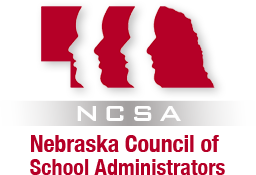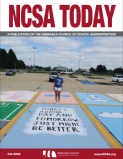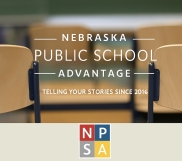Nebraska School Safety and Security Summit
 Nebraska School Safety and Security Summit
Nebraska School Safety and Security Summit
October 18 and/or 19, 2022
Holiday Inn - Kearney, NE
Regstration is now closed. Drop by the onsite registration desk to join.
The Nebraska Council of School Administrators, in partnership with the Nebraska Department of Education, University of Nebraska Public Policy Center, and BoysTown will hold the 5th Annual Nebraska School Safety and Security Summit October 18-19, 2022. Look for registration to open soon.
Registrants can choose to either attend both days or register for a single day. Our first day will consist of learning together while on the second day you will select two workshops to go in-depth into the areas most important to your needs before coming back together in the afternoon.
Scholarship Information
This is a grant-funded scholarship opportunity which is intended to support attendance at the October 2022 Nebraska School Safety and Security Summit. The scholarship will support up to five (5) people per school district who have or may in the future have threat assessment team responsibilities. The district can be reimbursed $350 per person to support registration, travel costs, and/or costs for substitutes to enable attendance.
View the Nebraska School Safety and Security Summit schedule & directory in Sched.
Tuesday, October 18
9:00 Welcome and overview of Day One
9:05-10:30 Why School Safety Is Important with Dorian VanHorn
10:30-10:45 Break
10:45-11:15 988 with Kyle Kinney and Michelle Nunemaker, DHHS
11:15-11:45 Safe2Help with Diana Schmidt, BoysTown
11:45-12:15 988 and Safe2Help School Panel
12:15-1:00 Lunch
1:00-2:00 Threat Assessment and Management in Nebraska Schools with Mario Scalora![]()
2:00-2:15 Break
2:15-3:15 Preventing Violent Behavior in School: the Why, What, and How with Heather Robbins
3:15 Adjourn
Wednesday, October 19
9:00-10:00 Select-A-Session 1
10:00-10:15 Break
10:15-11:15 Select-A-Session 2
11:15-11:30 Break
11:30-12:30 Select-A-Session 3
12:30-1:30 Lunch
1:30-3:00 Putting it all together: What’s next in Nebraska School Safety
3:00-3:30 Summation with Commissioner Matt Blomstedt
3:30 Adjourn
Wednesday Session Options
Select-A Session 1 (9:00-10:00)
School Suicide Policies and Procedures - the First Step in Prevention - Stateroom A
Sally Carlson & Kim Jacobson, NDE School Safety Suicide Prevention Team
(Target audience - school leaders, mental health professionals)
To promote the health and well-being of all students, school districts need to develop school policies and implement procedures to prevent, assess the risk of, intervene in, and respond to suicide. This session provides the recommended elements to include in school policies and procedures, including examples. The session also includes an overview of the Hazelden Lifelines Prevention Curriculum that is available to schools that are developing suicide policies through a mini-grant opportunity.
Developing and Sustaining your Emergency Operations Plan (EOP) -Stateroom B
Scott Stemper, NDE Emergency Operations Planning Specialist
(Target audience - administrators, safety team members, law enforcement, emergency managers, fire/rescue personnel)
The school’s EOP is a comprehensive document which covers a wide range of complex approaches schools may take in dealing with threats, hazards, and incidents. The importance of having an EOP can’t be understated. Besides the protection of students and staff, it can provide some protection from liability for your district. It takes a team effort. Who should be on your district safety team? The goal of this session will provide a discussion centered around what is required but more importantly to approach an EOP as not “have to” but shift the mindset to, “we want to” or “we must” when it comes to creating, modifying, or updating your plan. What are some of the lessons learned from across the districts in the state?
How Safety Fits with the Whole Child Approach? - Stateroom C
Jessie Coffey, NDE Director - Whole Child
(Target audience - school administrators, school mental health professionals, school threat and safety team members)
Feeling safe at school translates into higher academic achievement, increased student well-being, and greater engagement. Children who don't feel safe and supported can't concentrate on their studies, don't connect with their classmates, or don't go to school at all. The session will review the importance of ensuring that students are healthy, safe, engaged, supported, and challenged and the systems needed to continually ask questions to support a whole child approach. You will learn more about how to guide school and community improvement and outline how a whole child approach to education truly requires district wide partnership and collaboration that include all staff and students.
Nebraska Intelligence Analysis Center (NIAC) resources for Nebraska schools. - Stateroom D
Monty Lovelace, director NSP Fusion Center
(Target audience – school threat and safety team members, school resource officers, school administrators)
The Nebraska State Patrol’s Fusion Center Director Monty Lovelace will talk about how and what local law enforcement can access via NIAC; when and how schools can use NIAC resources directly; the type of expertise NIAC offers and how it supports the response to cyberthreats, bomb threats, threat assessment, and analysis of data that is not usually available to schools but could help inform safety decisions.
Select-A Session 2 (10:15-11:15)
SBQ-R (Suicidal Behavioral Questionnaire - Revised) Training - Stateroom A
Sally Carlson & Kim Jacobson, NDE School Safety Suicide Prevention Team
(Target audience - school mental health professionals)
Schools need specific intervention steps to follow in order to identify and assist students at risk for suicide, including referrals to school professionals trained to assess suicide risk. The SBQ-R is an evidence based tool that has been adopted statewide by many educational, medical, and law enforcement entities. This training will review the SBQ-R process and assist in developing risk assessment procedures.
Exercising Your Emergency Operations Plan (EOP) in an Hour or Less - Stateroom B
Kurt Mantonya and Jennifer Farley, NUPPC
(Target audience – School safety team members, emergency managers, school administrators, law enforcement, fire/rescue personnel)
This session will equip participants with the tools and resources needed to conduct tabletop exercises of the School EOP. The session will first review the purpose and timeline of tabletop exercises, then provide multiple school-based example scenarios developed and executed by the NUPPC over the past three years. Participants will be provided guidance and time to develop a tabletop exercise plan to use in the future with their school safety team and partners.
Utilizing Local Health Risk Behavior Data to Make Informed Decisions - Stateroom C
Jessie Coffey, NDE- Director of the Whole Child
(Target audience- school administrators, school counselors, school social workers)
This session provides an overview of Nebraska data related to risk behavior data for secondary schools. As students and families begin a new school year, it is our job to ensure that schools have the support and tools they need to promote the health and well-being of our state’s young people. Our data show that youth who felt connected to others at school during the pandemic had better mental health and fewer suicidal behaviors. We have long known that school connectedness protects against a wide array of youth health risks, including violence, substance use, and poor mental health. The benefits of school connectedness will be reviewed with take aways about our Nebraska data, how you can utilize this data for MTSS or other data driven decision making.
Practical Threat Management - Stateroom D
Mario Scalora, Director NUPPC
(Target audience – school threat assessment teams, school administrators, school counselors, school social workers)
This session provides an overview of how to set up monitoring systems with other school teams and external agencies; Effectively using resources to monitor and reassess behavior; and documenting threat management efforts.
What’s MTSS have to do with school safety? (repeated in Session 3) - Stateroom E
Jill Guenther and Mackenzie Riedel- NeMTSS Social, Emotional and Behavioral Learning (SEBL) Specialists.
(Target audience - school administrators, school mental health professionals, school threat and safety team members)
NeMTSS Social, Emotional and Behavioral Learning Specialists will discuss how school safety can be addressed within a multi-tiered system of support. This presentation will dive into how we can prevent crisis situations through Tier 1 efforts and how we can layer supports for those students who are displaying concerning behaviors.
Select-A Session 2 (11:30-12:30)
Critical Support for Students During Re-entry Following a Suicide Attempt - Stateroom A
Sally Carlson & Kim Jacobson, NDE School Safety Suicide Prevention Team
(Target audience - school leaders, crisis teams, mental health professionals)
We need to consider how difficult it can be for someone (a student or colleague) to return to school following a suicide-related incident. Research supports that they are actually at increased risk for suicidal behavior in the initial weeks or months after they return, and staff members often feel unprepared to support them. This session includes resources for schools to use to help students successfully transition back to school, including a checklist to ensure adequate support is in place, safety plan examples, and a set of tips to help teachers know what to look for and steps to take for successful re-entry.
Standard Response Protocol (SRP) - Stateroom B
Scott Stemper, NDE Emergency Operations Planning Specialist
(Target audience - administrators, safety team members, law enforcement, emergency managers, fire/rescue personnel)
The SRP is being used by the majority of Nebraska schools. Bringing common language and signage to our students, staff, and community will provide a sense of safety and security. Of the possible 125 threats, hazards, or incidents that can affect a U.S. school or community; the SRP can provide the initial response by your district. Four of the initial responses are used for threat-based threat, hazard, or incidents. The fifth response (HOLD) is not threat related but is also a valuable tool for schools and communities. This session will discuss and give realistic situations which have happened in Nebraska schools and communities. What are the lessons learned so we can respond in a more strategic way?
How to Center School Climate - Stateroom C
Sadie Wilson Project AWARE Specialist & Mariella Resendiz Alvarado Director of Education Partnership & Support-NDE Mental Health Team
(Target audience - school administrators, school mental health professionals, school threat and safety team members)
This session will focus on identifying what a positive school climate looks like, how climate affects staff and student safety, and what administrators can do to improve school climate. Attendees will come away with a clear understanding of the link between safety and climate, factors that influence climate and action steps they can implement to improve the wellbeing of their school community.
TA Team Speed Sessions - Stateroom D
Denise Bulling, Kurt Mantonya, & Jennifer Farley, NUPPC
(Target audience – threat assessment team members)
This session provides an opportunity for threat assessment team members to share practical experience and ask questions in three topic areas: TA team documentation; Triage and screening of reports; Educating the school community about TA and reporting.
What’s MTSS have to do with school safety? (repeated in Session 2) - Stateroom E
Jill Guenther and Mackenzie Riedel- NeMTSS Social, Emotional and Behavioral Learning (SEBL) Specialists.
(Target audience -school administrators, school mental health professionals, school threat and safety team members)
NeMTSS Social, Emotional and Behavioral Learning Specialists will discuss how school safety can be addressed within a multi-tiered system of support. This presentation will dive into how we can prevent crisis situations through Tier 1 efforts and how we can layer supports for those students who are displaying concerning behaviors.
Lodging Information
Holiday Inn - Kearney
Call (308) 237-5971
Mention: Safety Summit
Rate: $119.95 + tax
























